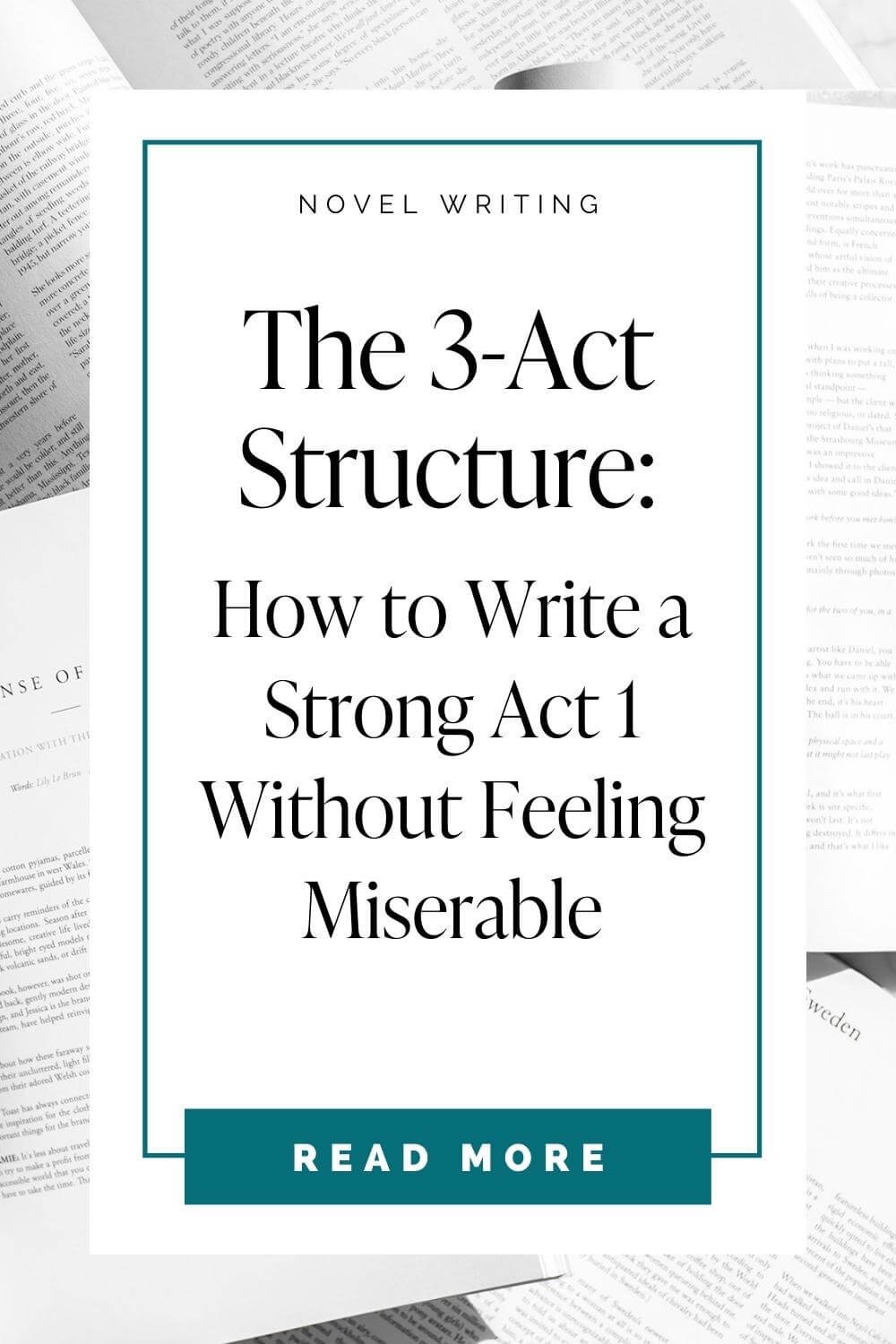
LET’S TALK about WRITING BOOKS
The 3-Act Structure: How to Write an Authentic and Satisfying Act 3
Here we are at the Big Kahuna of the 3-act structure: the third act. If you haven't read my last three blog posts on the 3-act structure (an overview and details on Act 1 and Act 2), please go do that now and then come back to this one. (Otherwise, this is not going to make a whole lot of sense.)
Three posts ago, I gave you an overview of the 3-act structure as a simple, powerful way to structure your story.
Then, I walked you through creating a strong Act 1 to hook you and your audience in quickly and effectively.
Next, I talked about how to write an engaging Act 2 by investing emotionally in your story. Now, we’re taking on the third and final act—the last thing you leave your audience with.
I’m sure you’ve been wondering all week how my law school story ends, so let’s wrap it up!
The 3-Act Structure: How to Write an Engaging Act 2 Without Boring Yourself to Tears
Rumor holds that Steven Spielberg once said—and excuse my French—“third acts are a bitch.” Not to contradict the God of the 21st Century Box Office, but I actually think second acts are harder.
To kick us off, I'm going to continue my story from last week about my first year of law school.
After the conversation with my aunt, a lawyer who tried to make me feel better about being in law school and not feeling smart enough to be there, I thought, “Okay, Mary, it’s time to get your act together.”
The Least Annoying and Most Usable Breakdown of the 3-Act Structure
Today we’re talking about—DUNH DUNH DUNH—the 3-act structure.
I used to be very intimidated by the 3-act structure. I listened to a very intimidating audiobook called Story and it included some line about how, if I made one wrong decision, my entire story would fall apart, and I turned it off immediately.
The 3-Act Structure: How to Write a Strong Act 1 Without Feeling Miserable
Here’s a true story. When I started law school at 25, I was certain that I was the dumbest person there. (That’s the word that I used in my head: dumbest.)
This certainty ran so deep that when a group of students went out to dinner together one of the first nights of school, and someone asked me how big the city I grew up in was, I was too embarrassed to tell him that I had absolutely no idea, so I just said, “medium.”
Not even medium-sized, just medium.
How Much Can an Author Expect to Make on Their Book?
I can’t tell you how many times I googled “how much money does an author make per book” before getting a book deal, myself. It’s such a black hole. It also varies tremendously... So while I can’t give you a specific answer for how much money you will make per book, let me start with the basics.
Can Anyone Write a Book? The Short, Honest Truth.
No. Not everyone can write a book. Sorry. But can you write a book? Probably. I’d call it a really good bet—if I had money to throw at bets, I’d throw money at the likelihood that you, person reading this, can write a book.
Writing a book comes down to 3 things:
What Does a Book Writing Coach Do?
Here’s a confession: until I became one, I didn’t know what a book writing coach does.
I had even hired one by that point. But because she didn’t refer to herself that way, I didn't know that “coaching” was what she was doing.
4 Signs You're Ready to Hire a Book Writing Coach
Years ago, I was stuck writing and rewriting my draft, having been previously traumatized by a couple of fiction classes that left me bewildered and discouraged.
I felt I needed...someone. I wasn’t sure who. Like a friend, but a friend who was a good writer, and willing to meet with me regularly and talk through my book progress and writing struggles. I wanted someone to read my new pages and give me feedback but not edit them yet.
3 Solutions to Combating Writing Disappointment That Aren't Delusions of Grandeur
Dear Mary,
Do you have suggestions for dealing with the struggle that the idea in your head is so much better than the way it comes out on paper?
When this question came up in our weekly group coaching call, there were a lot of nods. I think this is a struggle that many writers relate to—the disappointment of the words on paper failing to live up to our novel idea.
I certainly relate to it. Every book I've written has been better in my head, and of course it has—reality can't compete with an imaginary ideal. Our ideals don't have flaws—we conveniently leave those out in our fantasies!
But for some writers, this discrepancy between ideal and reality—the fear of writing disappointment—can be paralyzing.









